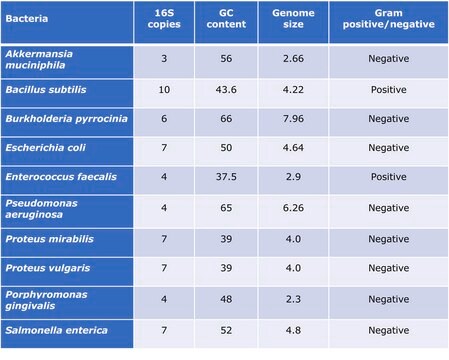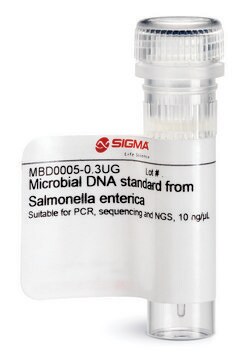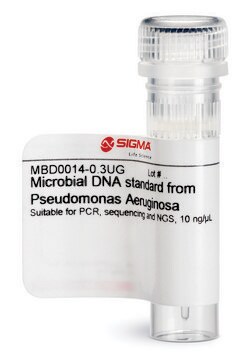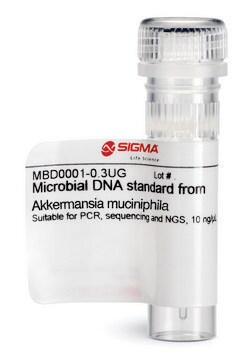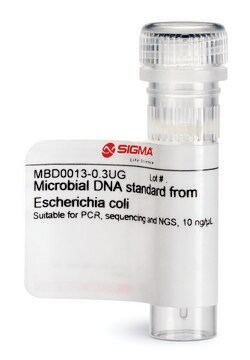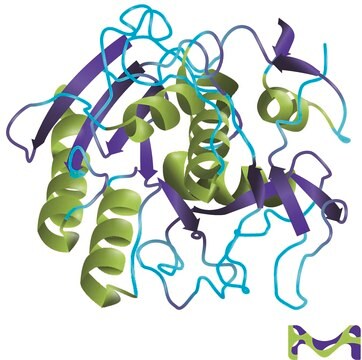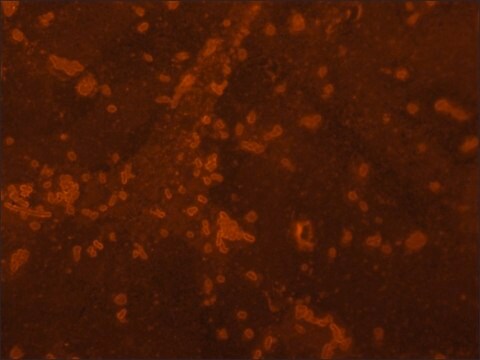MBD0002
Microbial DNA standard from Proteus mirabilis
Suitable for PCR, sequencing and NGS
About This Item
Recommended Products
Quality Level
form
liquid
concentration
10 ng/μL
technique(s)
DNA extraction: suitable
DNA sequencing: suitable
PCR: suitable
shipped in
ambient
storage temp.
−20°C
Related Categories
General description
Proteus mirabilis is a gram negative facultative anaerobic rod-shaped bacterium. Bacteria of the genus Proteus of the family Enterobacteriaceae are opportunistic human pathogens responsible for wound and burn infections as well as skin, eye, ear, nose, throat, urinary tract, and gastrointestinal infections and bacteremias.2 The most common infection involving P. mirabilis occurs when the bacteria, which is a member of the natural intestinal flora, moves to the urethra and urinary bladder causing urinary tract infection. The outer-membrane lipopolysaccharide (LPS) is considered an important virulence factor of Proteus.3 Arabski et al. suggest that the immunological response against P. mirabilis LPS might play a role in rheumatoid arthritis.4 A possible correlation between the abundance of P. mirabilis in the intestine and obesity was suggested recently.5
Read here how to use our standards to ensure data integrity for your microbiome research.
Application
Features and Benefits
- Individual microbial standard for microbiomics and meta-genomics workflow
- Suitable standard for PCR, sequencing and NGS
- Improve Bioinformatics analyses
- Increases reproducibility
- Compare results lab to lab
Physical form
Storage Class Code
12 - Non Combustible Liquids
WGK
WGK 1
Flash Point(F)
Not applicable
Flash Point(C)
Not applicable
Choose from one of the most recent versions:
Certificates of Analysis (COA)
Don't see the Right Version?
If you require a particular version, you can look up a specific certificate by the Lot or Batch number.
Already Own This Product?
Find documentation for the products that you have recently purchased in the Document Library.
Articles
The use of standards is critical to the integrity of metagenomics research. Learn how DNA standards for bacteria, fungi, and viruses are applied to studying the microbiome. Choose standards for E. coli and other key species, as well as mixed community standards.
Our team of scientists has experience in all areas of research including Life Science, Material Science, Chemical Synthesis, Chromatography, Analytical and many others.
Contact Technical Service